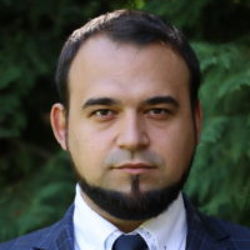Law on Russian software: IT tycoons’ lobby or interests of the whole industry?
Experts of the IT industry from Tatarstan explained why Russians should have Russian software on their gadgets
A law on mandatory pre-installation of Russian software on phones, computers, TV manufactured after 1 January 2021 will come into force in Russia from 1 April. The companies that will sell gadgets without Russian software might face up to 200,000 rubles of fine. The Russian government promises to annually update the list of the most “advanced” apps. 11 applications of two leading software manufacturers chaired the first rating of 28 programmes, which was created in the Russian Ministry of Digital Development, Communications and Mass Media. Isn’t the adoption of this law artificial support for certain producers? Realnoe Vremya is finding this out together with IT experts.
Software from Russia and neighbouring countries
Fines for selling electronic devices without Russian software are imposed in Russia from 1 April. Officials will have to pay from 30,000 to 50,000 rubles, legal entities will lose 50,000-200,000 rubles. Vladimir Putin recently signed the law on it. Russia’s consumer rights protection watchdog will consider this type of violations. The Russian State Dume adopted corresponding amendments to Article 14.8 of Russia’s Code of Administrative Offences at the third reading in the middle of March.
We should remind you that amendments to the law on the protection of consumers’ rights as of 7 February 1992 was adopted in late 2019. They oblige one to pre-install Russian software on smartphones, computers and SMART TVs that are sold in our country.
“When separate types of technically sophisticated goods with pre-installed software for computers are sold, the consumer is provided with the possibility of using separate types of technically sophisticated goods with pre-installed software for computers that come from the Russian Federation or other states — members of the Eurasian Economic Union,” the law reads.
This means that the “permitted” software can be produced not only in Russia but also in Belarus, Kazakhstan, Armenia, Kyrgyzstan. The new rules were to be in force last July. But the parliamentarians postponed the mandatory Russian software pre-installation last December into 1 April 2021.
“Russia is trying to fight against foreign companies earning from their citizens”
Software pre-installation is a part of the strategy for import substitution and development of Russian digital products. The compulsory availability of “our” apps in a new gadget will help IT companies to develop and increase their audience, Realnoe Vremya was explained in the press service of the Russian Ministry of Digital Development, Communications and Mass Media.

“We all want to live in a country in which rights, freedoms are a priority, of course. At the same time, any external interference is excluded. We see the international competition tightening today, for instance, in Nord Stream. Some states are hostile to this project, nobody wants our country to be open, prosperous, and they would be pleased to see our country in endless strikes, with the depressed economy. And the Internet, without doubt, is the main tool for such influence.
A big amount of products were developed outside the country. We have recently adopted the laws that hold one accountable for inciting somebody to suicide, child pornography, for some games that allow finding information, for instance, how to plot terrorist attacks and so on. It is publicly dangerous, negative information. And if it is presented in some psychological games and certain software, it is very bad,” the parliamentarian said in a talk with our newspaper.

According to him, numerous tax concessions for Russian IT companies facilitate this, those involved in state contracts that supply Russian software to public establishments in the country are provided preferences.
“So there was already created some imbalance for foreign IT companies in the Russian market. I want to note that Russians already actively use most programmes that now must be installed on devices and they have proven to be good. For instance, Yandex maps are more preferable than Google maps, though the latter are compulsorily installed on all Android smartphones and CarPlay vehicles. So the support for Russian manufacturers that have cemented a position in our market is a very logical and correct step to develop our economy in general,” explains the lawyer in a talk with Realnoe Vremya’s correspondent.
For Technocratia’s managing partner Bulat Ganiyev, it is obvious enough that with this law our state is trying not to isolate itself from the world but restrict the presence of foreign businesses.
“Russia joins the general trend of what’s done in all other countries that try to fight with American companies earning from their citizens. Moreover, either by not paying taxes inside the country or paying some insignificant part of tax inside this country. So domestic companies rather don’t withstand the competition with international companies from America, Silicon Valley. It is a usual protectionist policy, there is nothing new. And it is an absolutely normal approach from a perspective of the protection of national interests,” Ganiyev believes.

“There hadn’t been clear competition”
The Russian government determines the list of devices and software that must be installed and adds them to the list created by the Russian Ministry of Digital Development, Communications and Mass Media for a year. Last 31 December, the Russian government made such a list of 28 Russian programmes public. The top list included State Services and Mir payment system, My Office app to work with documents and Kaspersky anti-virus system, some popular social networks. Five products of Yandex and six of Mail.ru Group turned out to be in the lead.
This gave rise to an assumption that the law creates artificial support and will hit the development of competition in the IT industry by lobbying certain interests. Realnoe Vremya hasn’t received answers to its questions about this topic from Yandex, Mail.ru Group. And the Russian Federal Anti-Monopoly Service. However, the Russian Ministry of Digital Development, Communications and Mass Media commented on this situation for us.
“The ministry created a rating of popularity of software based on the data provided by companies and confirmed by independent audit reports. A commission including directors of leading Russian sectoral associations — RATEK, RUSSOFT, Russian Soft, APKIT, the Association of E-Commerce Companies and others — was made up in Russia’s Ministry of Digital Development, Communications and Mass Media additionally to evaluate applications. When preparing software pre-installation rules, the ministry of Russia met all norms of Russian legislation. The order of software selection for pre-installation envisaged by the Russian government’s decree No. 1867 as of 18.11.2020 was approved by Russia’s Ministry of Economic Development, Federal Anti-Monopoly Service and the country’s consumer rights protection watchdog,” the federal ministry replied.
Of course, any software pre-installation provides an additional flow of users, which, undoubtedly, is beneficial for such software, Yevgeny Lando drew the attention. But the pre-installation of some software on electronic devices doesn’t mean that other apps may not be downloaded later, noted Alexandra Zalmanova:
“The user can choose and install apps additionally. Moreover, the list of recommended apps will be replenished with time,” the Softline expert explained.

Head of Analytic Department at SearchInform Alexey Parfentyev doesn’t see a violation of anti-monopoly legislation either. In his opinion, the Yandex and Mail.ru apps dominate on the list of pre-installation because it is truly leading developers of services for users.
“It is strong decisions, their appearance on the list is the reflection of the situation in the market. The law doesn’t impose bans on other developers, and I haven’t heard a strong famous developer receive a ban on being on the list. As for the lobby, I can agree, though partly. We aren’t talking about the lobby of a company’s interests but the support for the sector’s interests. The goal of such artificial terms as requirements to pre-install Russian software is to popularise Russian developments and help them develop, become more competitive. So Russian services will be simply on the radar of gadget users, while it will be up to owners of devices to use these services or not,” Alexey Parfentyev explained.
Ayrat Farrakhov disagrees that the new rules back only certain brands.
“We live in the competitive world. I think that neither can today’s leading companies live calmly and relax in such conditions. For instance, both Sberbank and other business representatives are opening new platforms and products,” the deputy reminded us.

“The impossibility of using these goods in practice without a manufacturer’s pre-installed operating system is a distinctive feature of technically sophisticated goods. At the same time, manufacturers not only install an operating system but also install a lot of software a device could function without (for instance, a voice assistant, programmes to get access to social media, office software and so on). In this respect, there hadn’t been clean competition in the market of electronics before the adoption of this law. The European Union evaluated the competition in this market in the same way, which is proved by the decision of the European Commission on Microsoft and Google,” noted the head of Tatjurinform.
Ministry’s rating to revive the software market
The rating of goods will be updated every year, this is why all Russian developers will be able to add their product to the list of pre-installed apps, the press service of the federal ministry explained. Moreover, the programmes quickly gaining in popularity will be selected on 1 August: if the software has been downloaded more than 100,000 times in a year, it will be added to the list of related programmes. This subcategory is added to the annexe that unites socially important websites and start-ups, the Russian ministry said.
Yevgeny Umansky thinks the state’s interference reasonable because with the help of the adopted law it is trying to provide stiffer competition in the software market for electronics.
“The list of Russian pre-installed software is not determined by law but a decree of the Russian government, which envisages more flexible regulation, provides the possibility of changing the list as competitive products appear in the Russian software market. Among the 28 programmes approved by the Russian government, five are developed by Yandex, six are by Mail.ru. But the evaluation of the competitiveness of the market by the number of programmes isn’t objective because the market share of software should be compared. Given that the list has Sberbank’s OKKO online cinema and VK.com, the arguments about providing Yandex and Mail.ru with advantages don’t sound convincing,” the lawyer concluded.
“Talking about the development of a business in the IT industry, we all understand anyway that it is jobs, a salary for our young people, including in Tatarstan, in Innopolis. Our people won’t look for a place in the sun by leaving the country, the republic, they can calmly work here,” Ayrat Farrakhov noted.

Will gadgets and computers go up in price again?
The requirement on the compulsory pre-installation of Russian software on devices will increase the number of Russian mobile app users, assumes Sergey Kikilo.
“This will be a powerful impulse to develop the whole Russian software market, lay the foundation for their functional development and help develop competition. Products will become safer and more stable. The more users, the more mistakes one can detect and eliminate in a code,” the head of Innostage’s department concluded.

“A new business process is added to the production — software installation. This will inevitably take away a manufacturer’s time and resources. But I think these additional costs will be shifted to the buyer in the current situation with stiff competition among gadget manufacturers,” the expert expects.
However, the Ministry of Digital Development, Communications and Mass Media doesn’t think so.
“Software installation cannot cause a rise in the price for goods. The decree No. 1867 envisages that neither a manufacturer of devices nor a software rights holder may demand payment from each other for installing Russian software. Installation is free for the user too,” Realnoe Vremya was explained in the ministry.